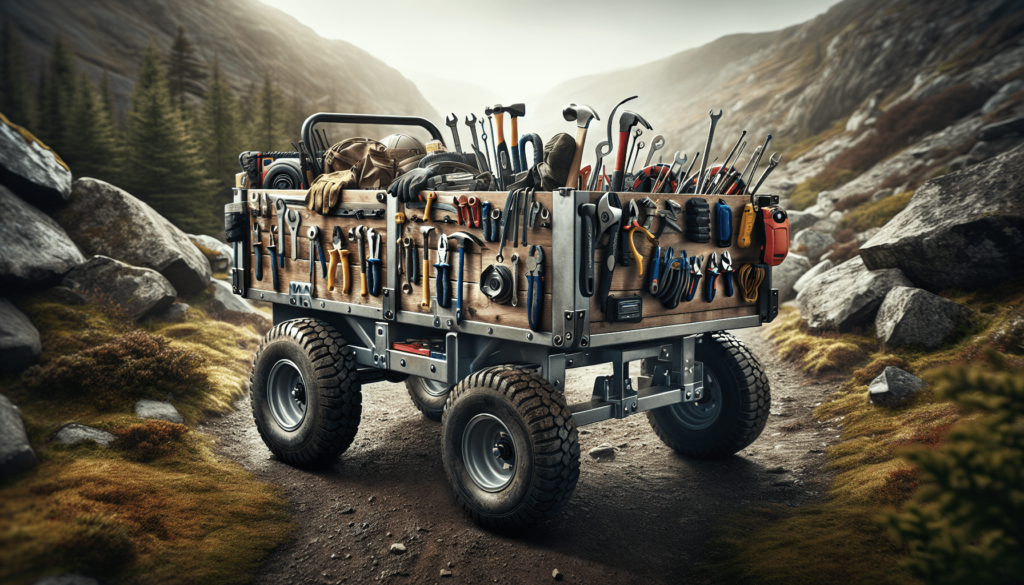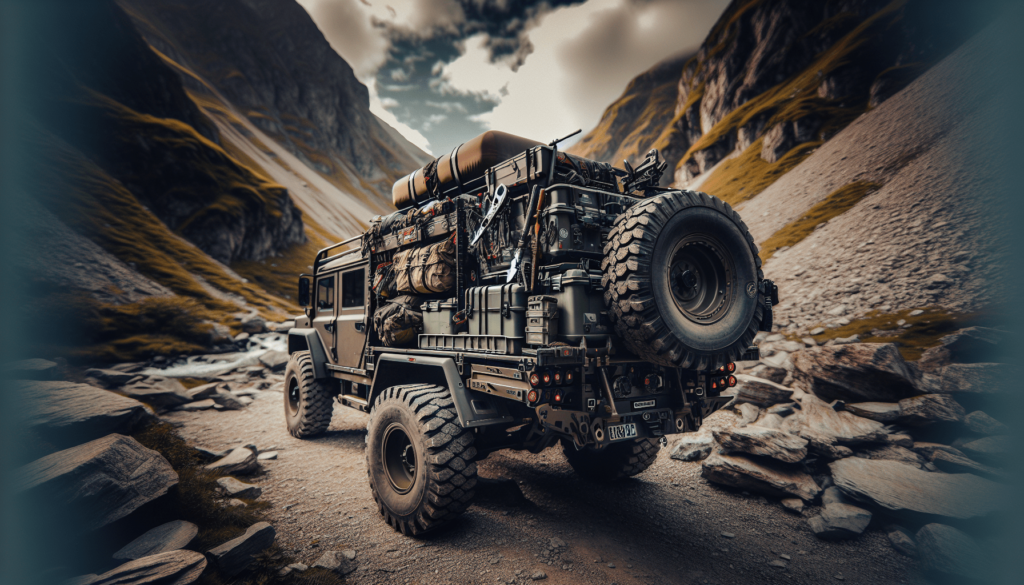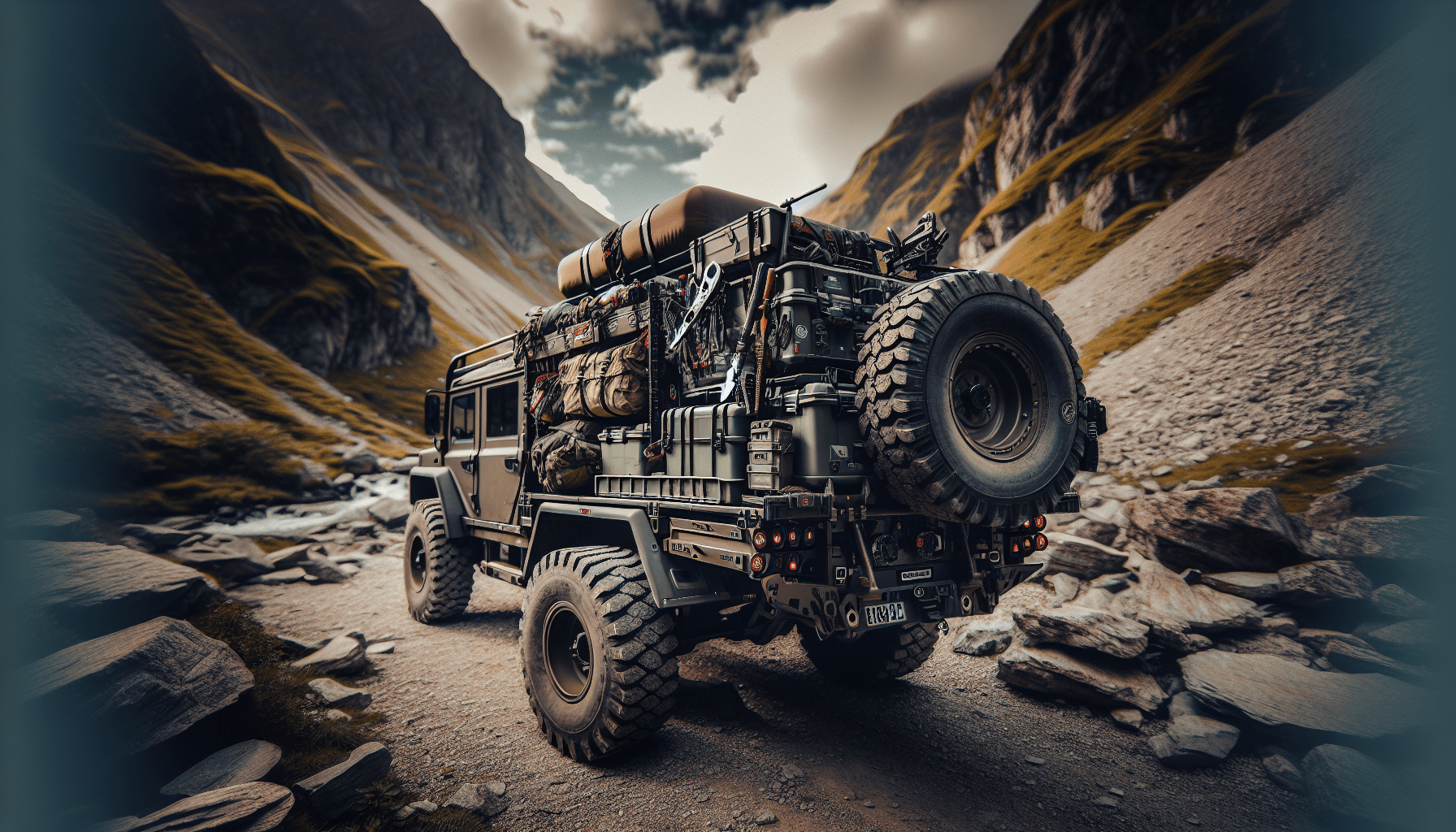Have you ever found yourself needing to transport heavy loads but worried about safety? You’re not alone. Choosing the right heavy-duty wagon can make a world of difference when it comes to securely moving items. In this guide, we’ll take a closer look at the essential features to consider, ensuring that your next purchase not only meets your needs but prioritizes safety.

Understanding the Importance of Safety in Heavy-Duty Wagons
When it comes to transporting heavy objects, safety is the cornerstone of any equipment selection. A heavy-duty wagon is designed not only for durability but also for stability and secure transport. The last thing you want is an accident because of faulty design or overlooked safety features. Therefore, being informed is key.
Weight Capacity
The first thing to think about is weight capacity. Every wagon has a specific limit, and exceeding this can lead to disasters. It’s crucial to evaluate how much weight you typically need to move and choose a wagon that can comfortably handle it.
| Wagon Model | Weight Capacity | Recommended Use |
|---|---|---|
| Model A | 1,000 lbs | Gardening & Storage |
| Model B | 1,500 lbs | Construction Materials |
| Model C | 2,000 lbs | Farm Equipment & Supplies |
Stability and Design
A heavy-duty wagon should exhibit sound engineering principles that promote stability. Look for low centers of gravity and wide wheelbases. These design elements aid in preventing tipping, especially when cornering or on uneven ground.
Wheel Quality
The wheels of your wagon can make or break your experience. Look for durable wheels, preferably made from rubber or polyurethane, as they offer superior traction and shock absorption. Moreover, consider the wheel size—larger wheels typically provide better performance on rough terrains.
Brake System
Having an effective brake system is non-negotiable. A wagon without brakes presents a safety hazard, particularly when loaded. Ensure that your wagon is equipped with easily operable brakes that can securely hold the wagon in place when stopped.
Types of Brakes
There are generally two types of brakes to look out for:
- Spring-Loaded Brakes: Automatically engage when you stop using the wagon, making it easier to set in place.
- Manual Brakes: Require you to engage them, placing the responsibility on you but allowing for better control in some situations.
Handle Design
The design of the handle can greatly impact your control over the wagon. A comfortable, well-placed handle will reduce strain on your back and arms while providing more leverage during turns.
Ergonomics
Ergonomically designed handles can promote a better grip and reduce fatigue during long hauling sessions. Look for features that allow you to switch handling positions, giving you flexibility and comfort.
Adjustable Handle
Another beneficial feature is an adjustable handle. This can be particularly useful for different user heights and means you can customize your comfort level, ensuring that you maintain control and safety as you transport your loads.
Towing Capabilities
If you’re considering a heavy-duty wagon that you can tow behind a vehicle, you’ll need to pay extra attention to its towing capacity and connection features.
Hitch Design
Inspect the hitch for ease of use and compatibility with various towing vehicles. A good hitch should secure firmly and allow for smooth trailer-like movements, ensuring safety on the road.
Safety Chains
In addition to the hitch, safety chains are a must. They provide an extra layer of safety, giving you peace of mind that even if the wagon disconnects, it will remain attached to your vehicle.

Material Durability
The material from which the wagon is built can affect its safety and longevity. A heavy-duty wagon should be made from high-quality materials that can withstand wear and tear.
Steel vs. Plastic
Steel wagons are generally more durable and can handle heavier loads but may rust over time without proper care. On the other hand, plastic wagons are lightweight and resistant to corrosion but may not support as much weight.
| Material Type | Advantages | Disadvantages |
|---|---|---|
| Steel | High weight capacity, durable | Susceptible to rust |
| Plastic | Lightweight, rust-resistant | Lower weight capacity |
Coatings and Finish
If you opt for a metal wagon, consider one with weather-resistant coatings. These finishes provide added durability and enhance safety, as they help prevent corrosion that can weaken the wagon over time.
Load Security Features
As you transport items, ensuring they’re secure is vital in preventing accidents. Look for wagons with built-in load securement systems, such as straps, nets, or solid sidewalls.
Sidewalls and Liners
Wagons with tall sidewalls can prevent materials from spilling over, while lined floors can help keep smaller items in place. This feature is incredibly important if you plan to haul loose materials like soil or gravel.
Visibility Features
Visibility can often be overlooked, but it plays an essential role in safety. Consider wagons that offer bright colors or reflective materials, which can help make the wagon noticeable to others and reduce the risk of accidents.
Lighting Options
If you plan to use your heavy-duty wagon in low-light conditions, adding lighting features or reflectors can significantly enhance safety. These adaptations ensure that you and your wagon can be seen, reducing the chances of mishaps.
Maintenance and Care
Even the best heavy-duty wagon needs some tender loving care to remain safe and functional. Regular maintenance can prevent mishaps and prolong the life of your wagon.
Check Wheels and Brakes
Make it a routine to check the wheels and brakes for any wear and tear. Regularly inspect for cracks or other damage that could jeopardize safety.
Cleaning
Cleaning is not just about appearance; it prevents build-up that could more seriously compromise functionality. It’s especially necessary for wagons that have been used for loading dirt or debris, as residues can affect performance over time.
User Rating and Reviews
While research is crucial, user feedback provides a wealth of knowledge. Before making a purchase, spend some time reading reviews. Customers often highlight safety features and performance concerns that can guide your decision.
Checking Specifications
Pay attention to the specifications provided by the manufacturer. If they list safety features or mention rigorous testing standards, it’s more likely you’re investing in a secure product.
Budget Considerations and Value
Finally, while budget is often a central concern, ensure you’re not compromising on safety and quality. It’s tempting to go for cheaper options, but the potential cost of accidents could surpass your savings.
Long-term Investment
A high-quality heavy-duty wagon may cost more upfront. However, if it features superior construction and safety elements, it’s a long-term investment that can save you both money and hassle down the line.
Taking Action: Making Your Choice
Now that you’re armed with knowledge about essential safety features, it’s time to think about your specific needs. Whether you’re hauling gardening supplies, equipment for a project, or belongings during a move, these factors will guide your decision.
Personal Needs Assessment
Take an inventory of what you need to transport, how often you’ll be using your wagon, and the typical terrain you’ll navigate. This will help you prioritize which features are non-negotiable and which ones you can compromise on.
Test Drive
If possible, test out the wagons you’re considering. How does it feel pushing or pulling it? Are the brakes intuitive? And does it feel stable when loaded? Hands-on experience can often reveal considerations that look good on paper but may not perform as expected.
Conclusion: Prioritize Your Safety
Investing in a heavy-duty wagon involves careful consideration, especially concerning safety features. By evaluating weight capacity, stability, braking systems, and user reviews, you can make a well-informed decision. Always prioritize safety to protect yourself and those around you, ensuring each transport is as hassle-free as it should be.
Your new wagon is not just a transport solution–it’s a reliable partner in moving heavy loads, and ensuring it’s up to the task means putting safety first. With this newfound knowledge, you’ll be ready to choose a heavy-duty wagon that meets your needs while keeping safety at the forefront.

